McDonald DIGITAL Institute
The Advanced Nature Photo Course
The Flash Course
This course is only offered by special request.
It is limited to only three participants.
This is the most comprehensive and thorough
nature photography FLASH course you will find
ANYWHERE.
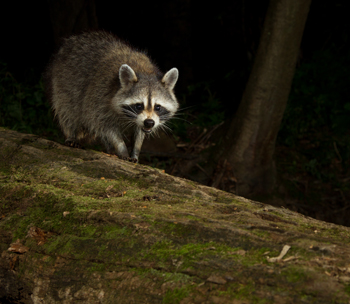
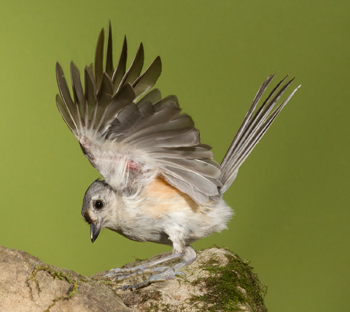
You pick the topics, based upon the number of
days you request. Topics will include your choices
from the following:
TTL flash - inside and out
Manual Flash - the importance of GN, inverse-square,
its application in the field, high-speed techniques
Using Remotes - to capture action and for unmanned shooting
Effectively using Extension Tubes and their application
Stacking Photos for Macro depth-of-field
Creating Incredible Eye Highlights
and much, much more!
This course
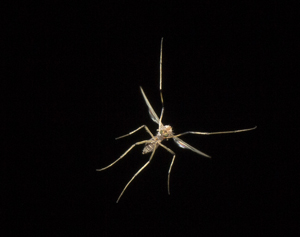 For all of our graduates of the D-CNPC, here's the perfect follow-up -- a course that takes what you've learned one BIG further step. In this course we'll delve further into both TTL and manual flash exposures, where you'll actually do a few setups yourself to master electronic flash lighting indoors or out. The course is divided into two main sections - flash theory, where you'll understand and practice TTL flash techniques, and Manual Flash, where you'll learn the techniques useful for studio flash, many outdoor setups, and most remote work, and flash practice, where you'll actually do several flash setups to apply what you have learned. We'll be spending more time shooting -- both for your Lab assignments but also in the field shooting that we'll critique later.
For all of our graduates of the D-CNPC, here's the perfect follow-up -- a course that takes what you've learned one BIG further step. In this course we'll delve further into both TTL and manual flash exposures, where you'll actually do a few setups yourself to master electronic flash lighting indoors or out. The course is divided into two main sections - flash theory, where you'll understand and practice TTL flash techniques, and Manual Flash, where you'll learn the techniques useful for studio flash, many outdoor setups, and most remote work, and flash practice, where you'll actually do several flash setups to apply what you have learned. We'll be spending more time shooting -- both for your Lab assignments but also in the field shooting that we'll critique later.
Read an Interesting Interview with Joe
THERE IS NO COURSE MORE THOROUGH, MORE INTENSE, MORE FILLED WITH ACTUAL LEARNING, AND MORE PRODUCTIVE FOR YOUR TIME - AND THAT'S THE OPINION OF ALL OF OUR HUNDREDS OF GRADUATES! iT'S ALSO FUN AND RICH WITH WONDERFUL PHOTOGRAPHIC OPPORTUNITIES ...
BUT OUR GOAL IS FOR YOU TO
LEARN AND MASTER
THE CRAFT OF FLASH PHOTOGRAPHY at the
McDonald DIGITAL Institute
Read a few Testimonials.
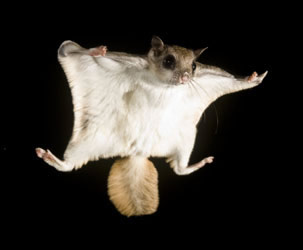 excerpts:
excerpts:
I just adored the high speed flash sections and the hands on set-up to take cool photos
of birds in flight and animals at night. This is the course I always wanted"
Pete Hudson, State College, PA.
The advanced flash course was great and helped me a lot. It really brought together the
interaction between conventional ambient light photography and flash photography.
Chuck Rohn, Maine
The Advanced Digital course definitely armed me with new tools to
take my photography to the next level.
Randy Gebhardt, Ohio
No doubt, flash photography opens up a world of new photographic opportunities for me
and it has been a revelation to have attended this course.
Angus Fraser, Australia
"Most of the people in this course were interested in wildlife photography. I am not. Their idea of a macro shot is one of a bee in a flower, mine is a shot of a little kid's latest Lego creation. You would be making a mistake not to take this course not matter what subject matter you like. Having done other workshops, I can say that I learned the most from this one. Unlike some others which are almost more about travel than photography, this is an intense course about flash and the travel is very limited -- basically from the farm where you stay to Hoot Hollow. The learning is done in the classroom and on site, which is exactly what I wanted as I want to learn techniques to apply anywhere I shoot. Some of the concepts (for example the inverse square law) take a little time to absorb but are so important that it is worth the investment. Mary Ann did not participate much due to a recent surgery, but Joe made himself 100% available and is a fantastic teacher. No offense to Mary Ann, but I am not sure how much more she could have added. Also, the team assignments were really fun and led to the group working together and learning from one another. I could not recommend this course more highly and it will open up a new arsenal for anyone." Peter Brock
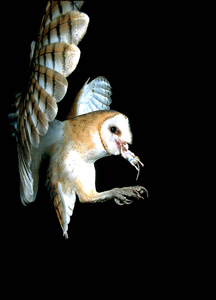
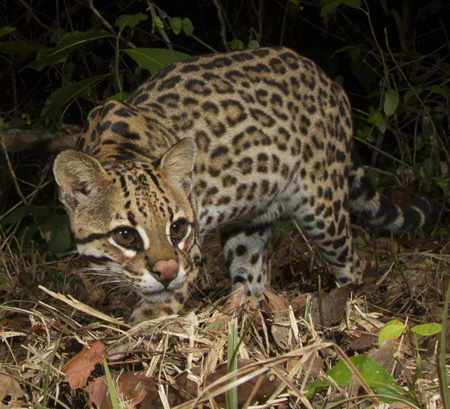
Imagine making images like this while you sleep! Master Flash, and using camera
remotes and you can!
Flash opens up the world, allowing you to capture
images
obtainable no other way.
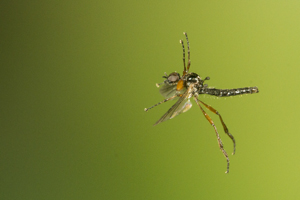
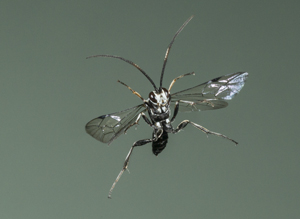 You will be learning all you need to master flash, both in a TTL mode and in Manual Mode,
and you'll also be exposed to how camera-remote tripping devices,
You will be learning all you need to master flash, both in a TTL mode and in Manual Mode,
and you'll also be exposed to how camera-remote tripping devices,
like
the Range IR, StopShot, StackShot, and remote cords can be incorporated for
making spectacular photographs.
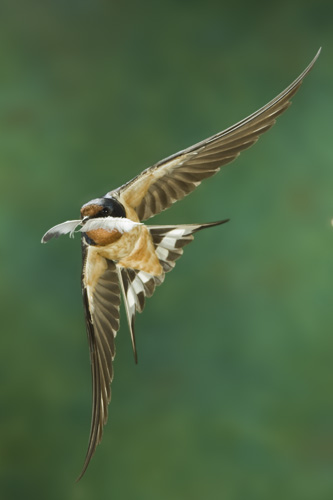
Limited to 3 participants
Price: $1000 per day for one person
$800 per day for two people
$700 per day for three people
(Depending upon what YOU want to cover, instruction can be accomplished in one day.
Two days will cover most classroom-type instruction and some hand's on practice.)
Contact us for your particular needs
Please read some of our testimonials for our Courses
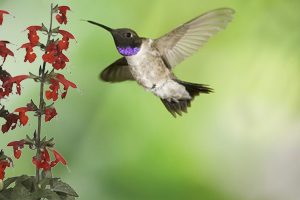
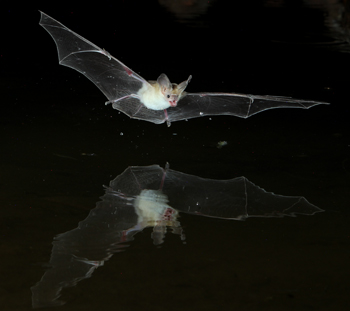
JUST SOME OF WHAT YOU CAN LEARN:
Using TTL Flash.
Everything YOU need to know, including how to balance flash with daylight as YOU control your lighting.
Using Manual Flash Mode.
Manual techniques are often essential for obtaining the correct exposure for a variety of reasons. You'll learn why!
Using remote camera-triggering devices like the RangeIR and PhotoTrap to capture action
Macro Photography and flash
Learn the lenses and the best lighting
Using the StackShot for incredible macro images with great depth of field
Portfolio Reviews -
we'll be viewing your best work
The Answers to your Questions
Solving Photographic Assignments
If this interests you, PLEASE READ ON!
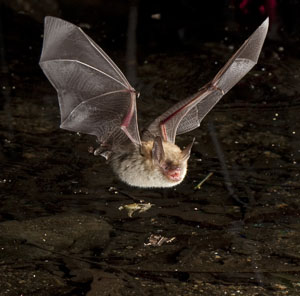
About the Course...
Time Frame: Each day will begin at 9AM and end at 5PM, with lunch included. Depending upon the topic or what you hope to accomplish-- for example, actually using a camera trippig device like a Range IR or Sabre, after dark setups and shooting may be required.
Contact us about your specific needs.
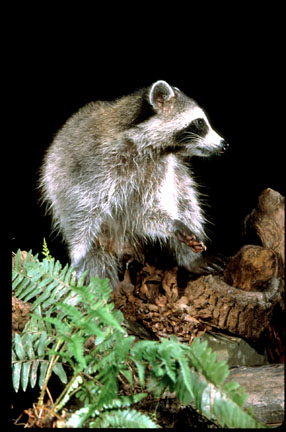
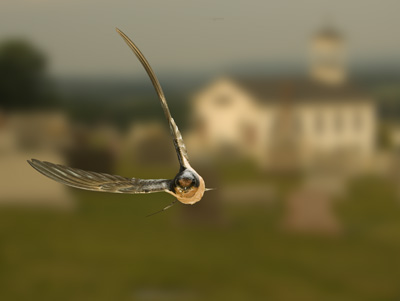

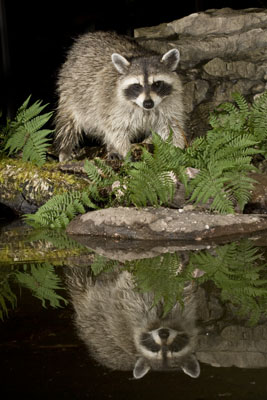
Our Format: The Advanced flash course is divided into lecture, flash classroom lab time, and field camera sessions in a flexible schedule that accommodates the group's needs and accounts for the vagaries of weather. Most lecture and in-door instruction and computer lab time occurs in the mid-morning, early afternoon, and after dinner -- times when the light is NOT at its peak. Photography can occur at any time, but generally occurs before and after breakfast and in the late afternoon. This schedule results in some shooting every day, so you'll have plenty of time to practice your new skills!
In our studio you will be doing flash setups where you will be solving a particular task, applying the skills you've learned in real shooting situations. For this we'll be divided into teams, so you don't have to worry about being alone and confused -- maybe everyone will be! In a team environment, however, and with my coaching, you'll solve some flash exercises that you will want to duplicate and to do on your own, in your future photography.
If you are interested in Macro Photography.
In some ways, macro photography and flash photography go hand-in-hand, as the extreme magnification may require great depth of field or action stopping. However, other techneques exist, like using the StackShot for controlled focuse combinations, and software, like Zerene and Helicon, that put these images together. We'll be demonstrating these techniques and you'll have a chance to put some images together.

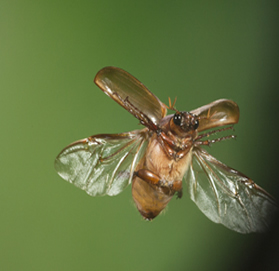
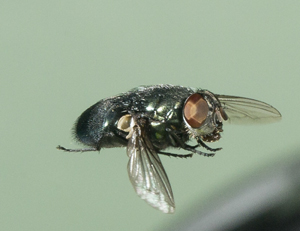
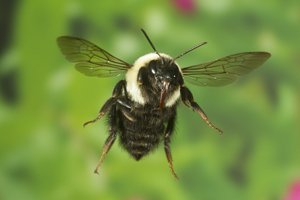
We'll also be demonstrating the Cognisys Insect Rig, that allows you to photograph insects in flight -- insects like beetles and bees and flies. We'll show you how to photograph nocturnal insects -- moths and stoneflies and lacewings -- using a Range IR and your own flash system, getting great shots while you sleep!
It's exciting!
Please Read This!
Our Participants: This course IS NOT for beginners or for those who do not have a foundation in traditional ambient light exposures. The course is designed for digital SLR shooters, amateur or professional, who want to advance their skills in the most productive manner possible.
I'd hate to discourage anyone from learning the wonderful opportunities that flash provides, but I'd rather discourage someone than disappoint someone with a course that simply isn't for them at this time.
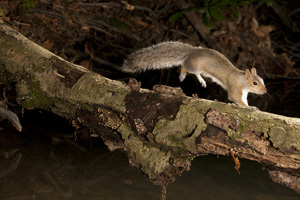
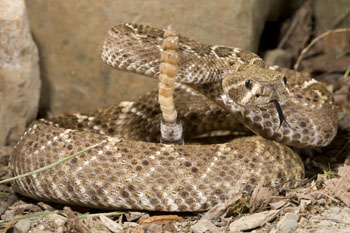
Some of what you can learn...
1. TTL Electronic Flash - Flash imagery will no longer disappoint you. Many students feel this is one of the most important items that they learned during the course, but knew nothing about beforethey began the course!
2. Manual Flash Techniques - High speed flash photography, remote photography, and challenging lighting conditions often require using manual flash techniques. Indeed, studio photography is usually done using manual flash modes, and you'll master the method.
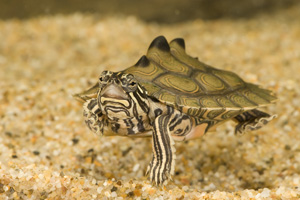
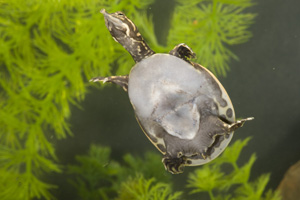
3. Aquarium Photography - making great lighting setups, dealing with reflections,
and the equipment you'll need.
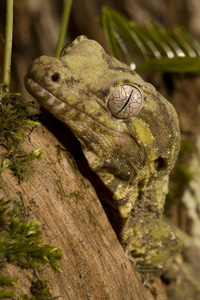
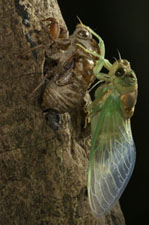
4. Flash Photography for Indoor or Outdoor Setups- You'll be doing a number of setups where you'll photograph wildlife subjects in studio or in the field. These techniques are necessary for creating natural-looking lighting setups in the field.
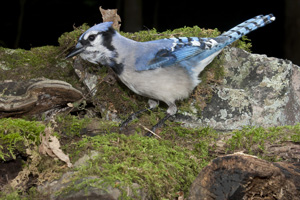
This Blue Jay is a perfect example of 'studio photography' applied in the field, at a feeder setup outside my studio. It was done with a PhotoTrap ...
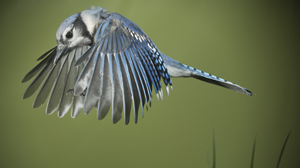 5. PhotoTraps, RangeIRs, and other ways to capture images remotely. Just as flash allows you to capture images obtainable no other way, so, too, do using camera-triggering devices. You'll learn how.
5. PhotoTraps, RangeIRs, and other ways to capture images remotely. Just as flash allows you to capture images obtainable no other way, so, too, do using camera-triggering devices. You'll learn how.
6. High Speed Flash. You'll have a project to learn the relationships involved in taking high-speed flash photographs, concerning ambient light, shutter lag, and flash duration. You'll learn by doing, and make some interesting images while doing so.
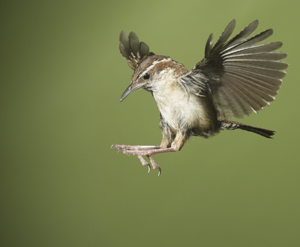
7. Macro Photo Composites, either done manually or with a StackShot, a mechancial device that automates the entire process. You'll need to download a trial copy of Helicon Focus 6 or Zerene Stacker if you wish to do one of these images yourself.
8. Learn From Your Shooting. You'll be making photographs all week - we won't. Except for instructional demonstrations with our cameras and lenses, we won't be photographing during your week. Instead, our creative energies will be devoted to helping you reach your creative potential.
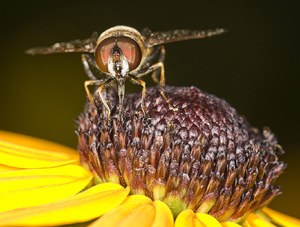 9. The Art of Seeing: Many people have the technical aspects of photography mastered, but lack vision. We'll work on improving your personal vision and technique. We'll be doing this through traditional photography, reviewing all the important concepts, but we'll also show you how you can expand your creative vision through Photoshop. Our goal is not to have Photoshop correct a poorly made image, but instead to show you how digital photography can expand your opportunities, and produce images not impossible to capture before. Real images, not fake composites, but images that require your 'seeing' the digital potential before you incorporate Photoshop to produce your results. Spectacularly EXCITING!
9. The Art of Seeing: Many people have the technical aspects of photography mastered, but lack vision. We'll work on improving your personal vision and technique. We'll be doing this through traditional photography, reviewing all the important concepts, but we'll also show you how you can expand your creative vision through Photoshop. Our goal is not to have Photoshop correct a poorly made image, but instead to show you how digital photography can expand your opportunities, and produce images not impossible to capture before. Real images, not fake composites, but images that require your 'seeing' the digital potential before you incorporate Photoshop to produce your results. Spectacularly EXCITING!
Our Location

The landscape of central Pennsylvania is green and rolling, farm country and mountains, offering thousands of subjects from farm scenes to foliage, flowers to fauna, allowing you to practice and perfect the skills you will be learning.
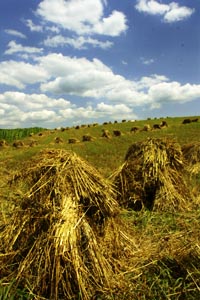 Hoot Hollow is located near McClure, Mifflin County, an extremely photogenic area of central Pennsylvania, about 45 miles SE of State College (home of Penn State University) and 90 minutes NW of Harrisburg, the state capital. All major airlines serve Harrisburg, where car rentals are available for anyone flying in for our courses. By car we are about 3 hours from Philadelphia or Baltimore, 4 hours from New York City or Pittsburgh. Our location is within a day's drive of much of the eastern, southeastern, and mid-west states. For example, the North Carolina border is around 8 hours away, and Indianapolis around 10. If you prefer to drive, rather than fly, we're really not that far away from much of the eastern US. Leaving the main highways, as you drive through the rolling farm country or cross over mountain ridges, one might think we are in the middle of nowhere, but the scenic possibilities in the area are fantastic. The farm and our Digital Lab are located in a broad valley framed by Jack's and Shade Mountains, and within a few minutes one can be filming within a hemlock forest, or driving along ridge top roads through miles of deciduous forests, or wandering the country roads through rolling hills in Amish and 'English' farm country.
Hoot Hollow is located near McClure, Mifflin County, an extremely photogenic area of central Pennsylvania, about 45 miles SE of State College (home of Penn State University) and 90 minutes NW of Harrisburg, the state capital. All major airlines serve Harrisburg, where car rentals are available for anyone flying in for our courses. By car we are about 3 hours from Philadelphia or Baltimore, 4 hours from New York City or Pittsburgh. Our location is within a day's drive of much of the eastern, southeastern, and mid-west states. For example, the North Carolina border is around 8 hours away, and Indianapolis around 10. If you prefer to drive, rather than fly, we're really not that far away from much of the eastern US. Leaving the main highways, as you drive through the rolling farm country or cross over mountain ridges, one might think we are in the middle of nowhere, but the scenic possibilities in the area are fantastic. The farm and our Digital Lab are located in a broad valley framed by Jack's and Shade Mountains, and within a few minutes one can be filming within a hemlock forest, or driving along ridge top roads through miles of deciduous forests, or wandering the country roads through rolling hills in Amish and 'English' farm country.
A PERSONAL NOTE: If you haven't experienced the infectious joy of nature photography, you soon will. And you'll discover this rewarding pursuit only grows more exciting and challenging as your skills increase. And that's the rub, for to get the most out of your shooting, your skills should improve. Unfortunately, on many of our tours and out-of-state workshops we've found participants lacking in the essential basics of exposure, techniques, procedures, and basic usage. That being so, we sincerely wish everyone who takes any of our tours or exotic workshops or safaris would first take the time to do this course. As you'll discover, it will become the foundation of your skills, and your future photography will benefit enormously from doing so.
The above statement is even more relevant, and important, for digital photographers. While digital photography seems easy, because of the immediate feedback it provides, an 'easy' image doesn't necessarily make a good one. Further, digital shooting opens up a whole new world of opportunity where a photographer is no longer hampered by scenes with varying ranges of exposure (within limits, of course!), or by the limitations of a lens's depth of field. Wide-view images that lose their impact as a wide-angle shot become dynamic, riveting images when shot as a panorama -- sometimes by using a telephoto! A whole new world of photography is now available, one that truly mirrors what our eyes see and not what our films have been able to capture. Now, we can capture what we truly see, using digital to capture the world as we see it.
Many have compared our DCNPC to a college-level course offered in an entire semester, and almost everyone states that they haven't worked so hard in a very long time, BUT that they enjoyed the hard work! You will, too, and we promise you that you will learn quality photography!
Our goal is not simply to present a thorough and enjoyable Digital Photography Course but, quite sincerely, to offer the most complete, most rewarding, and simply the best instructional program you will find, anywhere. Feedback from our participants tell us we've met that goal; one we intend to continue to meet.
About Your Instructors:
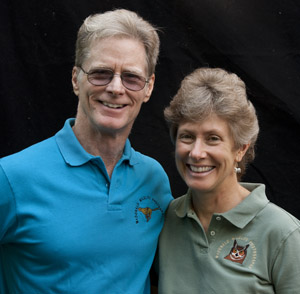 Joe McDonald is widely known in nature photograph as 'the master of flash,' and he has presented programs on flash, and taught flash techniques at Hoot Hollow, for over thirty years. He has been a full-time professional wildlife and nature photographer since 1983. He is the author of six books on wildlife photography and another on African Wildlife, as well as a how-to video produced with his wife, Mary Ann, on Photographing on Safari. His work has appeared in every major nature and wildlife publication published in North America. Along with operating their own stock photography business, Joe is represented by over a dozen stock photo agencies worldwide, including Cobras, Animals Animals, Auscape, Okapia, and others.
Joe McDonald is widely known in nature photograph as 'the master of flash,' and he has presented programs on flash, and taught flash techniques at Hoot Hollow, for over thirty years. He has been a full-time professional wildlife and nature photographer since 1983. He is the author of six books on wildlife photography and another on African Wildlife, as well as a how-to video produced with his wife, Mary Ann, on Photographing on Safari. His work has appeared in every major nature and wildlife publication published in North America. Along with operating their own stock photography business, Joe is represented by over a dozen stock photo agencies worldwide, including Cobras, Animals Animals, Auscape, Okapia, and others.
In addition to maintaining an active and informative website, www.hoothollow.com, Joe is a columnist for OUTDOOR PHOTOGRAPHER, writing the 'Focus on Big Game' column, and Joe and his wife Mary Ann write a column for Nature Photography magazine.
For nearly thirty years Joe and Mary Ann have been teaching photography courses and leading photography tours and workshops. Their very popular photo tours and safaris have them afield for over twenty-five weeks each year.
Joe has worked with Photoshop for several years, mainly for creating sales promotional material and for web site use. Now, with the advent of digital cameras, he is using Photoshop nearly daily. He is a member of the National Association of Photoshop Professionals.
Mary Ann McDonald, who runs the business end of the Digital Institute has been a full-time professional photographer since 1990. Mary is the author of 29 children's books on natural history, including titles on Leopards, Flying Squirrels, Jupiter, Horses, Mosquitoes, and other diverse topics. Her work has appeared in many of the major nature and wildlife publications in North America and is represented by several stock agencies worldwide, including Corbis and the BBC Natural History Archives. Mary Ann has been honored by winning in the Nature's Best Photo Competition and has won several times in the prestigious BBC Wildlife Photographer of the Year Competition. In 1994, she won two first places, the only time for a woman to accomplish this in the history of the competition and in 2005, both Joe and Mary Ann were selected as winners, the first time a husband and wife team have separately won in the competition in the same year. .
Our goal is simple - to offer the most complete, thorough, and rewarding learning experience available, in terms of the knowledge you'll gain, the quality of the experience you'll have, the intensity, and, just as importantly, the amiability and fun you'll experience.
McDonald DIGITAL Institute
The Advanced Nature Photo Course
The Flash Course
This course is only offered by special request.
It is limited to only three participants.
This is the most comprehensive and thorough
nature photography FLASH course you will find
ANYWHERE.
The Advanced Nature Photo Course
The Flash Course
This course is only offered by special request.
It is limited to only three participants.
This is the most comprehensive and thorough
nature photography FLASH course you will find
ANYWHERE.


You pick the topics, based upon the number of
days you request. Topics will include your choices
from the following:
TTL flash - inside and out
Manual Flash - the importance of GN, inverse-square,
its application in the field, high-speed techniques
Using Remotes - to capture action and for unmanned shooting
Effectively using Extension Tubes and their application
Stacking Photos for Macro depth-of-field
Creating Incredible Eye Highlights
and much, much more!
This course
 For all of our graduates of the D-CNPC, here's the perfect follow-up -- a course that takes what you've learned one BIG further step. In this course we'll delve further into both TTL and manual flash exposures, where you'll actually do a few setups yourself to master electronic flash lighting indoors or out. The course is divided into two main sections - flash theory, where you'll understand and practice TTL flash techniques, and Manual Flash, where you'll learn the techniques useful for studio flash, many outdoor setups, and most remote work, and flash practice, where you'll actually do several flash setups to apply what you have learned. We'll be spending more time shooting -- both for your Lab assignments but also in the field shooting that we'll critique later.
For all of our graduates of the D-CNPC, here's the perfect follow-up -- a course that takes what you've learned one BIG further step. In this course we'll delve further into both TTL and manual flash exposures, where you'll actually do a few setups yourself to master electronic flash lighting indoors or out. The course is divided into two main sections - flash theory, where you'll understand and practice TTL flash techniques, and Manual Flash, where you'll learn the techniques useful for studio flash, many outdoor setups, and most remote work, and flash practice, where you'll actually do several flash setups to apply what you have learned. We'll be spending more time shooting -- both for your Lab assignments but also in the field shooting that we'll critique later.
Read an Interesting Interview with Joe
THERE IS NO COURSE MORE THOROUGH, MORE INTENSE, MORE FILLED WITH ACTUAL LEARNING, AND MORE PRODUCTIVE FOR YOUR TIME - AND THAT'S THE OPINION OF ALL OF OUR HUNDREDS OF GRADUATES! iT'S ALSO FUN AND RICH WITH WONDERFUL PHOTOGRAPHIC OPPORTUNITIES ...
BUT OUR GOAL IS FOR YOU TO
LEARN AND MASTER
THE CRAFT OF FLASH PHOTOGRAPHY at the
McDonald DIGITAL Institute
Read a few Testimonials.
 excerpts:
excerpts:
I just adored the high speed flash sections and the hands on set-up to take cool photos
of birds in flight and animals at night. This is the course I always wanted"
Pete Hudson, State College, PA.
The advanced flash course was great and helped me a lot. It really brought together the
interaction between conventional ambient light photography and flash photography.
Chuck Rohn, Maine
The Advanced Digital course definitely armed me with new tools to
take my photography to the next level.
Randy Gebhardt, Ohio
No doubt, flash photography opens up a world of new photographic opportunities for me
and it has been a revelation to have attended this course.
Angus Fraser, Australia
"Most of the people in this course were interested in wildlife photography. I am not. Their idea of a macro shot is one of a bee in a flower, mine is a shot of a little kid's latest Lego creation. You would be making a mistake not to take this course not matter what subject matter you like. Having done other workshops, I can say that I learned the most from this one. Unlike some others which are almost more about travel than photography, this is an intense course about flash and the travel is very limited -- basically from the farm where you stay to Hoot Hollow. The learning is done in the classroom and on site, which is exactly what I wanted as I want to learn techniques to apply anywhere I shoot. Some of the concepts (for example the inverse square law) take a little time to absorb but are so important that it is worth the investment. Mary Ann did not participate much due to a recent surgery, but Joe made himself 100% available and is a fantastic teacher. No offense to Mary Ann, but I am not sure how much more she could have added. Also, the team assignments were really fun and led to the group working together and learning from one another. I could not recommend this course more highly and it will open up a new arsenal for anyone." Peter Brock


Imagine making images like this while you sleep! Master Flash, and using camera
remotes and you can!
Flash opens up the world, allowing you to capture
images
obtainable no other way.

 You will be learning all you need to master flash, both in a TTL mode and in Manual Mode,
and you'll also be exposed to how camera-remote tripping devices,
You will be learning all you need to master flash, both in a TTL mode and in Manual Mode,
and you'll also be exposed to how camera-remote tripping devices,
like
the Range IR, StopShot, StackShot, and remote cords can be incorporated for
making spectacular photographs.

Limited to 3 participants
Price: $1000 per day for one person
$800 per day for two people
$700 per day for three people
(Depending upon what YOU want to cover, instruction can be accomplished in one day.
Two days will cover most classroom-type instruction and some hand's on practice.)
Contact us for your particular needs
Please read some of our testimonials for our Courses


JUST SOME OF WHAT YOU CAN LEARN:
Using TTL Flash.
Everything YOU need to know, including how to balance flash with daylight as YOU control your lighting.
Using Manual Flash Mode.
Manual techniques are often essential for obtaining the correct exposure for a variety of reasons. You'll learn why!
Using remote camera-triggering devices like the RangeIR and PhotoTrap to capture action
Macro Photography and flash
Learn the lenses and the best lighting
Using the StackShot for incredible macro images with great depth of field
Portfolio Reviews -
we'll be viewing your best work
The Answers to your Questions
Solving Photographic Assignments
If this interests you, PLEASE READ ON!

About the Course...
Time Frame: Each day will begin at 9AM and end at 5PM, with lunch included. Depending upon the topic or what you hope to accomplish-- for example, actually using a camera trippig device like a Range IR or Sabre, after dark setups and shooting may be required.
Contact us about your specific needs.




Our Format: The Advanced flash course is divided into lecture, flash classroom lab time, and field camera sessions in a flexible schedule that accommodates the group's needs and accounts for the vagaries of weather. Most lecture and in-door instruction and computer lab time occurs in the mid-morning, early afternoon, and after dinner -- times when the light is NOT at its peak. Photography can occur at any time, but generally occurs before and after breakfast and in the late afternoon. This schedule results in some shooting every day, so you'll have plenty of time to practice your new skills!
In our studio you will be doing flash setups where you will be solving a particular task, applying the skills you've learned in real shooting situations. For this we'll be divided into teams, so you don't have to worry about being alone and confused -- maybe everyone will be! In a team environment, however, and with my coaching, you'll solve some flash exercises that you will want to duplicate and to do on your own, in your future photography.
If you are interested in Macro Photography.
In some ways, macro photography and flash photography go hand-in-hand, as the extreme magnification may require great depth of field or action stopping. However, other techneques exist, like using the StackShot for controlled focuse combinations, and software, like Zerene and Helicon, that put these images together. We'll be demonstrating these techniques and you'll have a chance to put some images together.




We'll also be demonstrating the Cognisys Insect Rig, that allows you to photograph insects in flight -- insects like beetles and bees and flies. We'll show you how to photograph nocturnal insects -- moths and stoneflies and lacewings -- using a Range IR and your own flash system, getting great shots while you sleep!
It's exciting!
Please Read This!
Our Participants: This course IS NOT for beginners or for those who do not have a foundation in traditional ambient light exposures. The course is designed for digital SLR shooters, amateur or professional, who want to advance their skills in the most productive manner possible.
I'd hate to discourage anyone from learning the wonderful opportunities that flash provides, but I'd rather discourage someone than disappoint someone with a course that simply isn't for them at this time.


Some of what you can learn...
1. TTL Electronic Flash - Flash imagery will no longer disappoint you. Many students feel this is one of the most important items that they learned during the course, but knew nothing about beforethey began the course!
2. Manual Flash Techniques - High speed flash photography, remote photography, and challenging lighting conditions often require using manual flash techniques. Indeed, studio photography is usually done using manual flash modes, and you'll master the method.


3. Aquarium Photography - making great lighting setups, dealing with reflections,
and the equipment you'll need.


4. Flash Photography for Indoor or Outdoor Setups- You'll be doing a number of setups where you'll photograph wildlife subjects in studio or in the field. These techniques are necessary for creating natural-looking lighting setups in the field.

This Blue Jay is a perfect example of 'studio photography' applied in the field, at a feeder setup outside my studio. It was done with a PhotoTrap ...
 5. PhotoTraps, RangeIRs, and other ways to capture images remotely. Just as flash allows you to capture images obtainable no other way, so, too, do using camera-triggering devices. You'll learn how.
5. PhotoTraps, RangeIRs, and other ways to capture images remotely. Just as flash allows you to capture images obtainable no other way, so, too, do using camera-triggering devices. You'll learn how.
6. High Speed Flash. You'll have a project to learn the relationships involved in taking high-speed flash photographs, concerning ambient light, shutter lag, and flash duration. You'll learn by doing, and make some interesting images while doing so.

7. Macro Photo Composites, either done manually or with a StackShot, a mechancial device that automates the entire process. You'll need to download a trial copy of Helicon Focus 6 or Zerene Stacker if you wish to do one of these images yourself.
8. Learn From Your Shooting. You'll be making photographs all week - we won't. Except for instructional demonstrations with our cameras and lenses, we won't be photographing during your week. Instead, our creative energies will be devoted to helping you reach your creative potential.
 9. The Art of Seeing: Many people have the technical aspects of photography mastered, but lack vision. We'll work on improving your personal vision and technique. We'll be doing this through traditional photography, reviewing all the important concepts, but we'll also show you how you can expand your creative vision through Photoshop. Our goal is not to have Photoshop correct a poorly made image, but instead to show you how digital photography can expand your opportunities, and produce images not impossible to capture before. Real images, not fake composites, but images that require your 'seeing' the digital potential before you incorporate Photoshop to produce your results. Spectacularly EXCITING!
9. The Art of Seeing: Many people have the technical aspects of photography mastered, but lack vision. We'll work on improving your personal vision and technique. We'll be doing this through traditional photography, reviewing all the important concepts, but we'll also show you how you can expand your creative vision through Photoshop. Our goal is not to have Photoshop correct a poorly made image, but instead to show you how digital photography can expand your opportunities, and produce images not impossible to capture before. Real images, not fake composites, but images that require your 'seeing' the digital potential before you incorporate Photoshop to produce your results. Spectacularly EXCITING!
Our Location

The landscape of central Pennsylvania is green and rolling, farm country and mountains, offering thousands of subjects from farm scenes to foliage, flowers to fauna, allowing you to practice and perfect the skills you will be learning.
 Hoot Hollow is located near McClure, Mifflin County, an extremely photogenic area of central Pennsylvania, about 45 miles SE of State College (home of Penn State University) and 90 minutes NW of Harrisburg, the state capital. All major airlines serve Harrisburg, where car rentals are available for anyone flying in for our courses. By car we are about 3 hours from Philadelphia or Baltimore, 4 hours from New York City or Pittsburgh. Our location is within a day's drive of much of the eastern, southeastern, and mid-west states. For example, the North Carolina border is around 8 hours away, and Indianapolis around 10. If you prefer to drive, rather than fly, we're really not that far away from much of the eastern US. Leaving the main highways, as you drive through the rolling farm country or cross over mountain ridges, one might think we are in the middle of nowhere, but the scenic possibilities in the area are fantastic. The farm and our Digital Lab are located in a broad valley framed by Jack's and Shade Mountains, and within a few minutes one can be filming within a hemlock forest, or driving along ridge top roads through miles of deciduous forests, or wandering the country roads through rolling hills in Amish and 'English' farm country.
Hoot Hollow is located near McClure, Mifflin County, an extremely photogenic area of central Pennsylvania, about 45 miles SE of State College (home of Penn State University) and 90 minutes NW of Harrisburg, the state capital. All major airlines serve Harrisburg, where car rentals are available for anyone flying in for our courses. By car we are about 3 hours from Philadelphia or Baltimore, 4 hours from New York City or Pittsburgh. Our location is within a day's drive of much of the eastern, southeastern, and mid-west states. For example, the North Carolina border is around 8 hours away, and Indianapolis around 10. If you prefer to drive, rather than fly, we're really not that far away from much of the eastern US. Leaving the main highways, as you drive through the rolling farm country or cross over mountain ridges, one might think we are in the middle of nowhere, but the scenic possibilities in the area are fantastic. The farm and our Digital Lab are located in a broad valley framed by Jack's and Shade Mountains, and within a few minutes one can be filming within a hemlock forest, or driving along ridge top roads through miles of deciduous forests, or wandering the country roads through rolling hills in Amish and 'English' farm country.
A PERSONAL NOTE: If you haven't experienced the infectious joy of nature photography, you soon will. And you'll discover this rewarding pursuit only grows more exciting and challenging as your skills increase. And that's the rub, for to get the most out of your shooting, your skills should improve. Unfortunately, on many of our tours and out-of-state workshops we've found participants lacking in the essential basics of exposure, techniques, procedures, and basic usage. That being so, we sincerely wish everyone who takes any of our tours or exotic workshops or safaris would first take the time to do this course. As you'll discover, it will become the foundation of your skills, and your future photography will benefit enormously from doing so.
The above statement is even more relevant, and important, for digital photographers. While digital photography seems easy, because of the immediate feedback it provides, an 'easy' image doesn't necessarily make a good one. Further, digital shooting opens up a whole new world of opportunity where a photographer is no longer hampered by scenes with varying ranges of exposure (within limits, of course!), or by the limitations of a lens's depth of field. Wide-view images that lose their impact as a wide-angle shot become dynamic, riveting images when shot as a panorama -- sometimes by using a telephoto! A whole new world of photography is now available, one that truly mirrors what our eyes see and not what our films have been able to capture. Now, we can capture what we truly see, using digital to capture the world as we see it.
Many have compared our DCNPC to a college-level course offered in an entire semester, and almost everyone states that they haven't worked so hard in a very long time, BUT that they enjoyed the hard work! You will, too, and we promise you that you will learn quality photography!
Our goal is not simply to present a thorough and enjoyable Digital Photography Course but, quite sincerely, to offer the most complete, most rewarding, and simply the best instructional program you will find, anywhere. Feedback from our participants tell us we've met that goal; one we intend to continue to meet.
About Your Instructors:
 Joe McDonald is widely known in nature photograph as 'the master of flash,' and he has presented programs on flash, and taught flash techniques at Hoot Hollow, for over thirty years. He has been a full-time professional wildlife and nature photographer since 1983. He is the author of six books on wildlife photography and another on African Wildlife, as well as a how-to video produced with his wife, Mary Ann, on Photographing on Safari. His work has appeared in every major nature and wildlife publication published in North America. Along with operating their own stock photography business, Joe is represented by over a dozen stock photo agencies worldwide, including Cobras, Animals Animals, Auscape, Okapia, and others.
Joe McDonald is widely known in nature photograph as 'the master of flash,' and he has presented programs on flash, and taught flash techniques at Hoot Hollow, for over thirty years. He has been a full-time professional wildlife and nature photographer since 1983. He is the author of six books on wildlife photography and another on African Wildlife, as well as a how-to video produced with his wife, Mary Ann, on Photographing on Safari. His work has appeared in every major nature and wildlife publication published in North America. Along with operating their own stock photography business, Joe is represented by over a dozen stock photo agencies worldwide, including Cobras, Animals Animals, Auscape, Okapia, and others.
In addition to maintaining an active and informative website, www.hoothollow.com, Joe is a columnist for OUTDOOR PHOTOGRAPHER, writing the 'Focus on Big Game' column, and Joe and his wife Mary Ann write a column for Nature Photography magazine.
For nearly thirty years Joe and Mary Ann have been teaching photography courses and leading photography tours and workshops. Their very popular photo tours and safaris have them afield for over twenty-five weeks each year.
Joe has worked with Photoshop for several years, mainly for creating sales promotional material and for web site use. Now, with the advent of digital cameras, he is using Photoshop nearly daily. He is a member of the National Association of Photoshop Professionals.
Mary Ann McDonald, who runs the business end of the Digital Institute has been a full-time professional photographer since 1990. Mary is the author of 29 children's books on natural history, including titles on Leopards, Flying Squirrels, Jupiter, Horses, Mosquitoes, and other diverse topics. Her work has appeared in many of the major nature and wildlife publications in North America and is represented by several stock agencies worldwide, including Corbis and the BBC Natural History Archives. Mary Ann has been honored by winning in the Nature's Best Photo Competition and has won several times in the prestigious BBC Wildlife Photographer of the Year Competition. In 1994, she won two first places, the only time for a woman to accomplish this in the history of the competition and in 2005, both Joe and Mary Ann were selected as winners, the first time a husband and wife team have separately won in the competition in the same year. .
Our goal is simple - to offer the most complete, thorough, and rewarding learning experience available, in terms of the knowledge you'll gain, the quality of the experience you'll have, the intensity, and, just as importantly, the amiability and fun you'll experience.


You pick the topics, based upon the number of
days you request. Topics will include your choices
from the following:
TTL flash - inside and out
Manual Flash - the importance of GN, inverse-square,
its application in the field, high-speed techniques
Using Remotes - to capture action and for unmanned shooting
Effectively using Extension Tubes and their application
Stacking Photos for Macro depth-of-field
Creating Incredible Eye Highlights
and much, much more!
This course
 For all of our graduates of the D-CNPC, here's the perfect follow-up -- a course that takes what you've learned one BIG further step. In this course we'll delve further into both TTL and manual flash exposures, where you'll actually do a few setups yourself to master electronic flash lighting indoors or out. The course is divided into two main sections - flash theory, where you'll understand and practice TTL flash techniques, and Manual Flash, where you'll learn the techniques useful for studio flash, many outdoor setups, and most remote work, and flash practice, where you'll actually do several flash setups to apply what you have learned. We'll be spending more time shooting -- both for your Lab assignments but also in the field shooting that we'll critique later.
For all of our graduates of the D-CNPC, here's the perfect follow-up -- a course that takes what you've learned one BIG further step. In this course we'll delve further into both TTL and manual flash exposures, where you'll actually do a few setups yourself to master electronic flash lighting indoors or out. The course is divided into two main sections - flash theory, where you'll understand and practice TTL flash techniques, and Manual Flash, where you'll learn the techniques useful for studio flash, many outdoor setups, and most remote work, and flash practice, where you'll actually do several flash setups to apply what you have learned. We'll be spending more time shooting -- both for your Lab assignments but also in the field shooting that we'll critique later.
Read an Interesting Interview with Joe
THERE IS NO COURSE MORE THOROUGH, MORE INTENSE, MORE FILLED WITH ACTUAL LEARNING, AND MORE PRODUCTIVE FOR YOUR TIME - AND THAT'S THE OPINION OF ALL OF OUR HUNDREDS OF GRADUATES! iT'S ALSO FUN AND RICH WITH WONDERFUL PHOTOGRAPHIC OPPORTUNITIES ...
BUT OUR GOAL IS FOR YOU TO
LEARN AND MASTER
THE CRAFT OF FLASH PHOTOGRAPHY at the
McDonald DIGITAL Institute
Read a few Testimonials.
 excerpts:
excerpts:
I just adored the high speed flash sections and the hands on set-up to take cool photos
of birds in flight and animals at night. This is the course I always wanted"
Pete Hudson, State College, PA.
The advanced flash course was great and helped me a lot. It really brought together the
interaction between conventional ambient light photography and flash photography.
Chuck Rohn, Maine
The Advanced Digital course definitely armed me with new tools to
take my photography to the next level.
Randy Gebhardt, Ohio
No doubt, flash photography opens up a world of new photographic opportunities for me
and it has been a revelation to have attended this course.
Angus Fraser, Australia
"Most of the people in this course were interested in wildlife photography. I am not. Their idea of a macro shot is one of a bee in a flower, mine is a shot of a little kid's latest Lego creation. You would be making a mistake not to take this course not matter what subject matter you like. Having done other workshops, I can say that I learned the most from this one. Unlike some others which are almost more about travel than photography, this is an intense course about flash and the travel is very limited -- basically from the farm where you stay to Hoot Hollow. The learning is done in the classroom and on site, which is exactly what I wanted as I want to learn techniques to apply anywhere I shoot. Some of the concepts (for example the inverse square law) take a little time to absorb but are so important that it is worth the investment. Mary Ann did not participate much due to a recent surgery, but Joe made himself 100% available and is a fantastic teacher. No offense to Mary Ann, but I am not sure how much more she could have added. Also, the team assignments were really fun and led to the group working together and learning from one another. I could not recommend this course more highly and it will open up a new arsenal for anyone." Peter Brock
THERE IS NO COURSE MORE THOROUGH, MORE INTENSE, MORE FILLED WITH ACTUAL LEARNING, AND MORE PRODUCTIVE FOR YOUR TIME - AND THAT'S THE OPINION OF ALL OF OUR HUNDREDS OF GRADUATES! iT'S ALSO FUN AND RICH WITH WONDERFUL PHOTOGRAPHIC OPPORTUNITIES ...
BUT OUR GOAL IS FOR YOU TO
LEARN AND MASTER
THE CRAFT OF FLASH PHOTOGRAPHY at the
McDonald DIGITAL Institute
Read a few Testimonials.
 excerpts:
excerpts:
I just adored the high speed flash sections and the hands on set-up to take cool photos
of birds in flight and animals at night. This is the course I always wanted"
Pete Hudson, State College, PA.
The advanced flash course was great and helped me a lot. It really brought together the
interaction between conventional ambient light photography and flash photography.
Chuck Rohn, Maine
The Advanced Digital course definitely armed me with new tools to
take my photography to the next level.
Randy Gebhardt, Ohio
No doubt, flash photography opens up a world of new photographic opportunities for me
and it has been a revelation to have attended this course.
Angus Fraser, Australia
"Most of the people in this course were interested in wildlife photography. I am not. Their idea of a macro shot is one of a bee in a flower, mine is a shot of a little kid's latest Lego creation. You would be making a mistake not to take this course not matter what subject matter you like. Having done other workshops, I can say that I learned the most from this one. Unlike some others which are almost more about travel than photography, this is an intense course about flash and the travel is very limited -- basically from the farm where you stay to Hoot Hollow. The learning is done in the classroom and on site, which is exactly what I wanted as I want to learn techniques to apply anywhere I shoot. Some of the concepts (for example the inverse square law) take a little time to absorb but are so important that it is worth the investment. Mary Ann did not participate much due to a recent surgery, but Joe made himself 100% available and is a fantastic teacher. No offense to Mary Ann, but I am not sure how much more she could have added. Also, the team assignments were really fun and led to the group working together and learning from one another. I could not recommend this course more highly and it will open up a new arsenal for anyone." Peter Brock


Imagine making images like this while you sleep! Master Flash, and using camera
remotes and you can!


Imagine making images like this while you sleep! Master Flash, and using camera
remotes and you can!
Flash opens up the world, allowing you to capture
images
obtainable no other way.

 You will be learning all you need to master flash, both in a TTL mode and in Manual Mode,
and you'll also be exposed to how camera-remote tripping devices,
You will be learning all you need to master flash, both in a TTL mode and in Manual Mode,
and you'll also be exposed to how camera-remote tripping devices,
like
the Range IR, StopShot, StackShot, and remote cords can be incorporated for
making spectacular photographs.
Flash opens up the world, allowing you to capture
images
obtainable no other way.

 You will be learning all you need to master flash, both in a TTL mode and in Manual Mode,
and you'll also be exposed to how camera-remote tripping devices,
You will be learning all you need to master flash, both in a TTL mode and in Manual Mode,
and you'll also be exposed to how camera-remote tripping devices,
like
the Range IR, StopShot, StackShot, and remote cords can be incorporated for
making spectacular photographs.

Limited to 3 participants
Price: $1000 per day for one person
$800 per day for two people
$700 per day for three people
(Depending upon what YOU want to cover, instruction can be accomplished in one day.
Two days will cover most classroom-type instruction and some hand's on practice.)
Contact us for your particular needs



Manual techniques are often essential for obtaining the correct exposure for a variety of reasons. You'll learn why! |
|
Learn the lenses and the best lighting |
|
we'll be viewing your best work |
|
If this interests you, PLEASE READ ON!

About the Course...

About the Course...
Time Frame: Each day will begin at 9AM and end at 5PM, with lunch included. Depending upon the topic or what you hope to accomplish-- for example, actually using a camera trippig device like a Range IR or Sabre, after dark setups and shooting may be required.
Contact us about your specific needs.




Our Format: The Advanced flash course is divided into lecture, flash classroom lab time, and field camera sessions in a flexible schedule that accommodates the group's needs and accounts for the vagaries of weather. Most lecture and in-door instruction and computer lab time occurs in the mid-morning, early afternoon, and after dinner -- times when the light is NOT at its peak. Photography can occur at any time, but generally occurs before and after breakfast and in the late afternoon. This schedule results in some shooting every day, so you'll have plenty of time to practice your new skills!
In our studio you will be doing flash setups where you will be solving a particular task, applying the skills you've learned in real shooting situations. For this we'll be divided into teams, so you don't have to worry about being alone and confused -- maybe everyone will be! In a team environment, however, and with my coaching, you'll solve some flash exercises that you will want to duplicate and to do on your own, in your future photography.
If you are interested in Macro Photography.
In some ways, macro photography and flash photography go hand-in-hand, as the extreme magnification may require great depth of field or action stopping. However, other techneques exist, like using the StackShot for controlled focuse combinations, and software, like Zerene and Helicon, that put these images together. We'll be demonstrating these techniques and you'll have a chance to put some images together.




We'll also be demonstrating the Cognisys Insect Rig, that allows you to photograph insects in flight -- insects like beetles and bees and flies. We'll show you how to photograph nocturnal insects -- moths and stoneflies and lacewings -- using a Range IR and your own flash system, getting great shots while you sleep!
It's exciting!
Please Read This!
Our Participants: This course IS NOT for beginners or for those who do not have a foundation in traditional ambient light exposures. The course is designed for digital SLR shooters, amateur or professional, who want to advance their skills in the most productive manner possible.
I'd hate to discourage anyone from learning the wonderful opportunities that flash provides, but I'd rather discourage someone than disappoint someone with a course that simply isn't for them at this time.


Some of what you can learn...
1. TTL Electronic Flash - Flash imagery will no longer disappoint you. Many students feel this is one of the most important items that they learned during the course, but knew nothing about beforethey began the course!
2. Manual Flash Techniques - High speed flash photography, remote photography, and challenging lighting conditions often require using manual flash techniques. Indeed, studio photography is usually done using manual flash modes, and you'll master the method.


3. Aquarium Photography - making great lighting setups, dealing with reflections,
and the equipment you'll need.


4. Flash Photography for Indoor or Outdoor Setups- You'll be doing a number of setups where you'll photograph wildlife subjects in studio or in the field. These techniques are necessary for creating natural-looking lighting setups in the field.

This Blue Jay is a perfect example of 'studio photography' applied in the field, at a feeder setup outside my studio. It was done with a PhotoTrap ...
 5. PhotoTraps, RangeIRs, and other ways to capture images remotely. Just as flash allows you to capture images obtainable no other way, so, too, do using camera-triggering devices. You'll learn how.
5. PhotoTraps, RangeIRs, and other ways to capture images remotely. Just as flash allows you to capture images obtainable no other way, so, too, do using camera-triggering devices. You'll learn how.
6. High Speed Flash. You'll have a project to learn the relationships involved in taking high-speed flash photographs, concerning ambient light, shutter lag, and flash duration. You'll learn by doing, and make some interesting images while doing so.

7. Macro Photo Composites, either done manually or with a StackShot, a mechancial device that automates the entire process. You'll need to download a trial copy of Helicon Focus 6 or Zerene Stacker if you wish to do one of these images yourself.
8. Learn From Your Shooting. You'll be making photographs all week - we won't. Except for instructional demonstrations with our cameras and lenses, we won't be photographing during your week. Instead, our creative energies will be devoted to helping you reach your creative potential.
1. TTL Electronic Flash - Flash imagery will no longer disappoint you. Many students feel this is one of the most important items that they learned during the course, but knew nothing about beforethey began the course!
2. Manual Flash Techniques - High speed flash photography, remote photography, and challenging lighting conditions often require using manual flash techniques. Indeed, studio photography is usually done using manual flash modes, and you'll master the method.


3. Aquarium Photography - making great lighting setups, dealing with reflections,
and the equipment you'll need.


4. Flash Photography for Indoor or Outdoor Setups- You'll be doing a number of setups where you'll photograph wildlife subjects in studio or in the field. These techniques are necessary for creating natural-looking lighting setups in the field.

This Blue Jay is a perfect example of 'studio photography' applied in the field, at a feeder setup outside my studio. It was done with a PhotoTrap ...
 5. PhotoTraps, RangeIRs, and other ways to capture images remotely. Just as flash allows you to capture images obtainable no other way, so, too, do using camera-triggering devices. You'll learn how.
5. PhotoTraps, RangeIRs, and other ways to capture images remotely. Just as flash allows you to capture images obtainable no other way, so, too, do using camera-triggering devices. You'll learn how.
6. High Speed Flash. You'll have a project to learn the relationships involved in taking high-speed flash photographs, concerning ambient light, shutter lag, and flash duration. You'll learn by doing, and make some interesting images while doing so.

7. Macro Photo Composites, either done manually or with a StackShot, a mechancial device that automates the entire process. You'll need to download a trial copy of Helicon Focus 6 or Zerene Stacker if you wish to do one of these images yourself.
8. Learn From Your Shooting. You'll be making photographs all week - we won't. Except for instructional demonstrations with our cameras and lenses, we won't be photographing during your week. Instead, our creative energies will be devoted to helping you reach your creative potential.
 9. The Art of Seeing: Many people have the technical aspects of photography mastered, but lack vision. We'll work on improving your personal vision and technique. We'll be doing this through traditional photography, reviewing all the important concepts, but we'll also show you how you can expand your creative vision through Photoshop. Our goal is not to have Photoshop correct a poorly made image, but instead to show you how digital photography can expand your opportunities, and produce images not impossible to capture before. Real images, not fake composites, but images that require your 'seeing' the digital potential before you incorporate Photoshop to produce your results. Spectacularly EXCITING!
9. The Art of Seeing: Many people have the technical aspects of photography mastered, but lack vision. We'll work on improving your personal vision and technique. We'll be doing this through traditional photography, reviewing all the important concepts, but we'll also show you how you can expand your creative vision through Photoshop. Our goal is not to have Photoshop correct a poorly made image, but instead to show you how digital photography can expand your opportunities, and produce images not impossible to capture before. Real images, not fake composites, but images that require your 'seeing' the digital potential before you incorporate Photoshop to produce your results. Spectacularly EXCITING!
 9. The Art of Seeing: Many people have the technical aspects of photography mastered, but lack vision. We'll work on improving your personal vision and technique. We'll be doing this through traditional photography, reviewing all the important concepts, but we'll also show you how you can expand your creative vision through Photoshop. Our goal is not to have Photoshop correct a poorly made image, but instead to show you how digital photography can expand your opportunities, and produce images not impossible to capture before. Real images, not fake composites, but images that require your 'seeing' the digital potential before you incorporate Photoshop to produce your results. Spectacularly EXCITING!
9. The Art of Seeing: Many people have the technical aspects of photography mastered, but lack vision. We'll work on improving your personal vision and technique. We'll be doing this through traditional photography, reviewing all the important concepts, but we'll also show you how you can expand your creative vision through Photoshop. Our goal is not to have Photoshop correct a poorly made image, but instead to show you how digital photography can expand your opportunities, and produce images not impossible to capture before. Real images, not fake composites, but images that require your 'seeing' the digital potential before you incorporate Photoshop to produce your results. Spectacularly EXCITING!
Our Location

The landscape of central Pennsylvania is green and rolling, farm country and mountains, offering thousands of subjects from farm scenes to foliage, flowers to fauna, allowing you to practice and perfect the skills you will be learning.
 Hoot Hollow is located near McClure, Mifflin County, an extremely photogenic area of central Pennsylvania, about 45 miles SE of State College (home of Penn State University) and 90 minutes NW of Harrisburg, the state capital. All major airlines serve Harrisburg, where car rentals are available for anyone flying in for our courses. By car we are about 3 hours from Philadelphia or Baltimore, 4 hours from New York City or Pittsburgh. Our location is within a day's drive of much of the eastern, southeastern, and mid-west states. For example, the North Carolina border is around 8 hours away, and Indianapolis around 10. If you prefer to drive, rather than fly, we're really not that far away from much of the eastern US. Leaving the main highways, as you drive through the rolling farm country or cross over mountain ridges, one might think we are in the middle of nowhere, but the scenic possibilities in the area are fantastic. The farm and our Digital Lab are located in a broad valley framed by Jack's and Shade Mountains, and within a few minutes one can be filming within a hemlock forest, or driving along ridge top roads through miles of deciduous forests, or wandering the country roads through rolling hills in Amish and 'English' farm country.
Hoot Hollow is located near McClure, Mifflin County, an extremely photogenic area of central Pennsylvania, about 45 miles SE of State College (home of Penn State University) and 90 minutes NW of Harrisburg, the state capital. All major airlines serve Harrisburg, where car rentals are available for anyone flying in for our courses. By car we are about 3 hours from Philadelphia or Baltimore, 4 hours from New York City or Pittsburgh. Our location is within a day's drive of much of the eastern, southeastern, and mid-west states. For example, the North Carolina border is around 8 hours away, and Indianapolis around 10. If you prefer to drive, rather than fly, we're really not that far away from much of the eastern US. Leaving the main highways, as you drive through the rolling farm country or cross over mountain ridges, one might think we are in the middle of nowhere, but the scenic possibilities in the area are fantastic. The farm and our Digital Lab are located in a broad valley framed by Jack's and Shade Mountains, and within a few minutes one can be filming within a hemlock forest, or driving along ridge top roads through miles of deciduous forests, or wandering the country roads through rolling hills in Amish and 'English' farm country.
A PERSONAL NOTE: If you haven't experienced the infectious joy of nature photography, you soon will. And you'll discover this rewarding pursuit only grows more exciting and challenging as your skills increase. And that's the rub, for to get the most out of your shooting, your skills should improve. Unfortunately, on many of our tours and out-of-state workshops we've found participants lacking in the essential basics of exposure, techniques, procedures, and basic usage. That being so, we sincerely wish everyone who takes any of our tours or exotic workshops or safaris would first take the time to do this course. As you'll discover, it will become the foundation of your skills, and your future photography will benefit enormously from doing so.
The above statement is even more relevant, and important, for digital photographers. While digital photography seems easy, because of the immediate feedback it provides, an 'easy' image doesn't necessarily make a good one. Further, digital shooting opens up a whole new world of opportunity where a photographer is no longer hampered by scenes with varying ranges of exposure (within limits, of course!), or by the limitations of a lens's depth of field. Wide-view images that lose their impact as a wide-angle shot become dynamic, riveting images when shot as a panorama -- sometimes by using a telephoto! A whole new world of photography is now available, one that truly mirrors what our eyes see and not what our films have been able to capture. Now, we can capture what we truly see, using digital to capture the world as we see it.
Many have compared our DCNPC to a college-level course offered in an entire semester, and almost everyone states that they haven't worked so hard in a very long time, BUT that they enjoyed the hard work! You will, too, and we promise you that you will learn quality photography!
Our goal is not simply to present a thorough and enjoyable Digital Photography Course but, quite sincerely, to offer the most complete, most rewarding, and simply the best instructional program you will find, anywhere. Feedback from our participants tell us we've met that goal; one we intend to continue to meet.
About Your Instructors:
 Joe McDonald is widely known in nature photograph as 'the master of flash,' and he has presented programs on flash, and taught flash techniques at Hoot Hollow, for over thirty years. He has been a full-time professional wildlife and nature photographer since 1983. He is the author of six books on wildlife photography and another on African Wildlife, as well as a how-to video produced with his wife, Mary Ann, on Photographing on Safari. His work has appeared in every major nature and wildlife publication published in North America. Along with operating their own stock photography business, Joe is represented by over a dozen stock photo agencies worldwide, including Cobras, Animals Animals, Auscape, Okapia, and others.
Joe McDonald is widely known in nature photograph as 'the master of flash,' and he has presented programs on flash, and taught flash techniques at Hoot Hollow, for over thirty years. He has been a full-time professional wildlife and nature photographer since 1983. He is the author of six books on wildlife photography and another on African Wildlife, as well as a how-to video produced with his wife, Mary Ann, on Photographing on Safari. His work has appeared in every major nature and wildlife publication published in North America. Along with operating their own stock photography business, Joe is represented by over a dozen stock photo agencies worldwide, including Cobras, Animals Animals, Auscape, Okapia, and others.
In addition to maintaining an active and informative website, www.hoothollow.com, Joe is a columnist for OUTDOOR PHOTOGRAPHER, writing the 'Focus on Big Game' column, and Joe and his wife Mary Ann write a column for Nature Photography magazine.
For nearly thirty years Joe and Mary Ann have been teaching photography courses and leading photography tours and workshops. Their very popular photo tours and safaris have them afield for over twenty-five weeks each year.
Joe has worked with Photoshop for several years, mainly for creating sales promotional material and for web site use. Now, with the advent of digital cameras, he is using Photoshop nearly daily. He is a member of the National Association of Photoshop Professionals.
Mary Ann McDonald, who runs the business end of the Digital Institute has been a full-time professional photographer since 1990. Mary is the author of 29 children's books on natural history, including titles on Leopards, Flying Squirrels, Jupiter, Horses, Mosquitoes, and other diverse topics. Her work has appeared in many of the major nature and wildlife publications in North America and is represented by several stock agencies worldwide, including Corbis and the BBC Natural History Archives. Mary Ann has been honored by winning in the Nature's Best Photo Competition and has won several times in the prestigious BBC Wildlife Photographer of the Year Competition. In 1994, she won two first places, the only time for a woman to accomplish this in the history of the competition and in 2005, both Joe and Mary Ann were selected as winners, the first time a husband and wife team have separately won in the competition in the same year. .
Our goal is simple - to offer the most complete, thorough, and rewarding learning experience available, in terms of the knowledge you'll gain, the quality of the experience you'll have, the intensity, and, just as importantly, the amiability and fun you'll experience.


